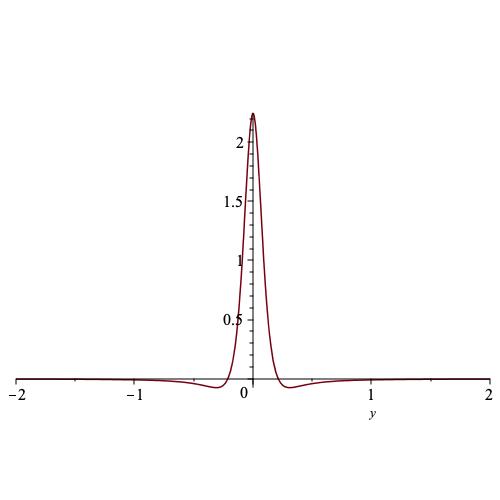Consider the function $$\phi_{a,b}(t)=\frac{|t|}{e^{a|t|}-e^{-b|t|}}, \ \ t\in\mathbb{R},$$ where $0<a<b$. Can $\phi_{a,b}$ be the Fourier transform of a positive function for some $a<b$?
2 Answers
No for $0<a<b$ your function has a global maximum at $\pm x_0 \neq 0$. Then, if it was $\hat{\varphi} = f $ for some positive function $\varphi$, $f(x-y)$ would be a positive semidefinite kernel. In particular $$ 0\leq \det \begin{bmatrix} f(0) & f(x_0) \\ f(-x_0) & f(0) \end{bmatrix} = f(0)^2 - f(x_0)^2 $$ which is a contradiction. This in fact uses very little the explicit form of your function.
-
3$\begingroup$ Ah, so clever and easy! Actually, that (cosine) Fourier transform of a positive function must have maximum at 0 is less or more obvious itself, without $2 \times 2$ determinants. $\endgroup$ Commented Mar 27 at 9:21
-
$\begingroup$ @FedorPetrov You are right, even easier ! $\endgroup$ Commented Mar 27 at 10:04
-
$\begingroup$ Thanks @an_ordinary_mathematician for the wonderful argument! $\endgroup$– RibhuCommented Mar 27 at 12:56
Comment
The inverse Fourier transform of $\phi_{1,2}$ looks like this

Is there any reason to think there exist $a,b$ where it has different behavior?
